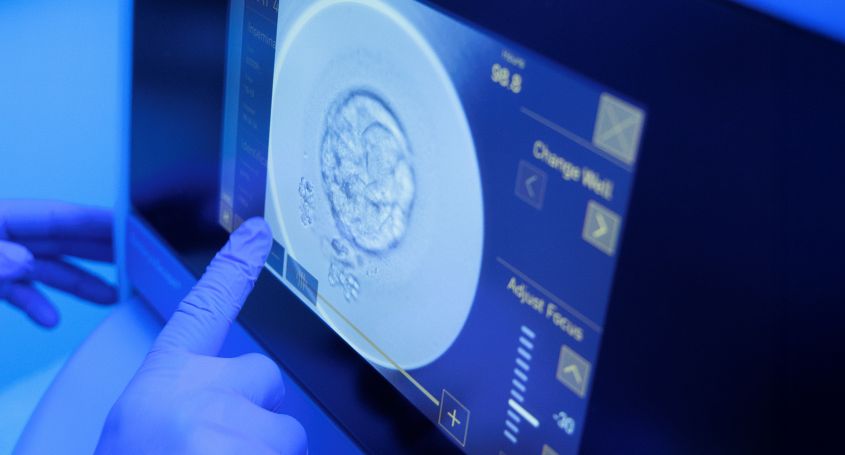The early stage of the embryo is crucial for its good development, but what if the embryo fails to form due to implantation or fertilisation problems? How do we differentiate between the two? Can the chances of implantation be improved? We answer these questions below.
Is it implantation or fertilisation failure, or is it a recurrent miscarriage?
When we try to achieve a natural pregnancy but do not succeed, we do not know exactly whether it is due to implantation failure or whether the male and female gametes have failed to carry out fertilisation. The only way to confirm whether it is a case of implantation failure is through in vitro fertilisation .
On the other hand, if pregnancies are achieved, but there is more than one foetal loss, we call it a repeat miscarriage. To find out the causes of failure or miscarriage, we must look at assisted reproduction .
When do we consider implantation failure and why does it happen?
Implantation failure occurs when a patient has not achieved pregnancy after 3 cycles of in vitro fertilisation with her own eggs or 2 cycles of egg donation .
The causes of these failures are diverse. Some examples are: alterations in the endometrium, poor quality of the embryo or of the couple's gametes, etc.
What tests are performed in an implantation failure and repeat miscarriage study?
The study of repeat miscarriages and implantation failure includes:
- A hysteroscopy: a test that allows us to rule out alterations at the level of the uterine cavity.
- An analysis of the endometrium to evaluate its receptivity and to rule out asymptomatic infections.
- A study of the couple's chromosomes to rule out genetic alterations
Lupus anticoagulant, anticardiolipin, and B2-glycoprotein antibodies. In some cases, the immune system does not recognise the embryo as its own and antibodies are formed against tissue expressing proteins of paternal origin. Reproductive autoimmunity can lead to miscarriage or implantation failure.
A study of the factors involved in the coagulation mechanism.
Hormone analysis including progesterone and oestrogens to assess ovarian reserve , as well as TSH and T4L for thyroid information.
Is it possible to have sexual intercourse during implantation?
Yes, in fact, one study suggests that sexual intercourse during embryo implantation helps to achieve pregnancy.
How to improve the chances of implantation?
First of all, an essential process in assisted reproduction that helps to avoid implantation failures is the evaluation of embryos and the selection of the best quality ones. It is also important to bear in mind that the endometrium must be receptive, i.e. able to interact with the embryo. On the other hand, nutrition influences fertility and the early stage of embryo development, so it is recommended to follow a balanced diet. These are some of the ways that can help us to avoid implantation failures.
If you have any doubts, ask us!















